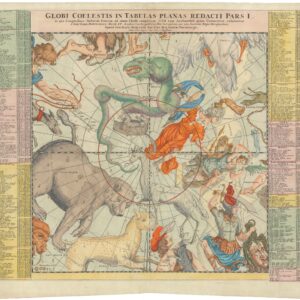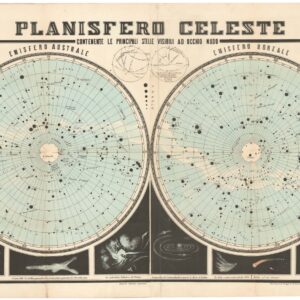A unique Cold War photograph.
Team-signed photo of Czechoslovakia’s 1969 hockey team [with souvenir glass puck].
$900
In stock
Description
Neatline is thrilled to offer this extremely rare and iconic piece of Cold War sports memorabilia. This is the official team photograph of Czechoslovakia’s national ice hockey team, taken at the world championships in Sweden in 1969. On the verso, all players and coaches have signed the photo. Included with the photo is the official glass puck that was issued as a souvenir for VIPs by the Swedish organizers.
The Czechoslovakian team has gone down in history because they beat the Soviets at the height of the Cold War, only months after the Red Army occupied their country. In doing so, the team became national heroes and symbols of popular resistance against tyranny. Their story is one of the most epic tales to have come out from behind the Iron Curtain.
In the shadow of Soviet invasion
In 1969, the World Championships in ice hockey were held in Sweden. Originally, the event had been scheduled in Prague, then capital of Czechoslovakia, but the Czechs had been forced to pull from the event after the Soviet Union’s Red Army invaded their country in August of 1968. The invasion came in direct response to a political reform movement known as the Prague Spring, which, under the leadership of First Secretary Alexander Dubček, sought fundamental civil liberties and national autonomy in what Dubček famously termed “socialism with a human face.”
The invasion of Czechoslovakia, especially Prague, resonated worldwide in that the Warsaw Pact finally was showing its true colors as the extended arm of a totalitarian USSR. The Czechs resisted this integration with evil and suffered accordingly. Among the protests were a series of demonstrative self-immolations, the most famous of which was student Jan Palach setting himself on fire in Prague’s central Wenceslas Square (Vaclavske Namesti). But resistance was futile. Red Army tanks rolled through the streets of Prague, and any opposition to this invasion was quickly cast as counter-revolutionary nationalism. The oppression of the Czechoslovak people was complete.
The 1969 World Championships in Ice Hockey
Due to the events of 1968, Czechoslovakia canceled the championships in Prague. Instead, Sweden offered to provide the infrastructure and venues to complete the world championship. The Soviet Union was keenly interested in seeing the championships take place, not only to downplay their invasion of Czechoslovakia but just as much because hockey was the most popular national pastime in the Soviet Union. Indeed, the Soviets would win the tournament and become world champions that year, but not before the Czechs beat them 2-0 and 4-3 during a single week in late March.
Twice, the Czechoslovakian team stepped onto the ice to symbolically face their oppressors, and twice, they beat the Russians at their own favorite game. It was a historic event, but more importantly, it constituted a symbolic victory that spoke to the hearts of ordinary people everywhere. The team immediately became national heroes, with coach Jaroslav Pitner dubbed the ‘General on Ice.’
Due to Sweden’s neutrality, the players could wear their politics on their sleeves. Team members covered the red star on their jerseys with black tape and refused to shake hands with their opponents following the game. At the following press conference, Pitner apologized with a heavy irony, noting that it was normal for losers to congratulate winners.
Czechoslvakia’s Hockey Riots
Following the first victory, the people of Czechoslovakia were elated. Still, after the second victory, this elation transcended into sheer joy, and the victories became emblems of Czechoslovakian resistance around which ordinary people could rally. To this day, it is one of the most celebrated episodes of the Cold War and a perfect example of how even an occupied and oppressed people can and will resist.
After the second victory on March 28th, people poured into the streets in a wave of spontaneous nationwide celebrations. In Prague alone, it was estimated that half a million people joined the celebrations, which soon grew into anti-Soviet protests. News host and TV personality Milena Vostřáková was not only fired from her job but wholly banned from appearing in televised media after she described Czechoslovakia’s wins as not only athletic but indeed moral victories.
Despite the elation and brief mass resistance to Soviet occupation, the so-called Normalisation process that the Soviets claimed to be spearheading continued to take root. In Soviet terminology, the protests were negatively cast as the “Hockey Riots.” Despite the noble endeavor to cry for freedom, the events would soon serve as a pretext for the USSR to oust the leaders of the Prague Spring, including first secretary Alexander Dubček.
A living legacy
With Russia and other totalitarian regimes rising again today, the lessons and heroes of the Cold War are worth revisiting. They represent Western Civilization’s determination to be free of political oppression. To this day, the 1969 team is considered a national heroes in the Czech Republic and Slovakia. International interest in their story also continues, with Prof. Ethan Scheiner of the University of California Davis recently having written a book dedicated to this story:
Ethan Scheiner (2023). Freedom to Win: A Cold War Story of the Courageous Hockey Team That Fought the Soviets for the Soul of Its People―and Olympic Gold. New York: Pegasus.
Click here to listen to Radio Prague International’s interview with Dr Scheiner about this story and his new book.
Provenance
From the descendants of Mr. Arvid Petterson, the Head of Security (vaktmäster) for several stadiums hosting the championship games in Stockholm in 1969. The underlying geo-political connotations of the situation were not lost on Mr. Petterson, and so he personally got all the members of the team (including the coaches) to sign the verso of the photograph.
Census
To our knowledge, there are no other photographs such as this on the market or indeed in exhibited collections.
Cartographer(s):
Condition Description
Very good.
References

![[Set of Four Allegorical Mezzotints of the Continents] America. Europa. Africa. Asia.](https://neatlinemaps.com/wp-content/uploads/2022/07/NL-01491-asia_thumbnail-scaled-300x300.jpg)

